Psymposium
Vol. 33 No. 5 – March 2023
Psychologists’ Association of Alberta

Understanding People | Working Together
This osprey
home to
returns
nest - Alberta Rocky Mountains.
Board of Directors
President
Claire Petersen
President-Elect
Heather Gower
Past President
Nicki Wilson
Treasurer
April Salciano
Board Custodian
Mira Singh
Early Career Representative
Dr. Sandra Dixon
Student Representative
Katherine Archibald
Provisional Representative
Samantha Gruber
Members at Large
Tamara Austin
Heather Gower
Dr. Jacqui Linder
Dr. Sally MacLean
CEO

Dr. Judi Malone
Editorial
Editor-In-Chief
Dr. Michelle Vandegriend
Contributing Writers
Dr. Jon Amundson
Dr. Jeff Chang
Dr. Gina Ko
Dr. Michael Stolte
Dr. Michael Zwiers
PAA Psymposium [ISSN 1193-2627] is the official newsletter of the Psychologists’ Association of Alberta.
Canadian Publication Mail Product Sales Agreement #40020241.
Except where specifically indicated, the opinions expressed in Psymposium are strictly those of the authors and do not necessarily reflect the opinions of the Psychologists’ Association of Alberta, its officers, directors, or employees. The Psychologists’ Association of Alberta reserves the right to edit all articles and submissions before publication and to decide on the suitability for publication.
PAA Psymposium is published five times a year (January, March, June, September, November) for the purpose of fostering communication amongst psychologists and supporting the goals of the Association and the profession of psychology. The newsletter is available to all members of the PAA on our website or by subscription, as well as to public subscribers and selected individuals and organizations with interests in the practice of psychology.
Except where otherwise indicated, copyright 1998 by the Psychologists’ Association of Alberta are in effect. Permission is granted to reproduce up to 10 copies of any article as it appears in PAA Psymposium, if such reproductions are distributed without profit for educational or research purposes only and properly cite Psymposium and denote PAA copyright. Permission for additional reproductions or reproduction for commercial purposes must be obtained in writing from the Editor-In-Chief. PAA generally welcomes requests to reprint from other professional newsletters.
Psymposium is submitted to PsycEXTRA, a database set up by the American Psychological Association, which contains newsletters, policy papers, white papers, fact sheets, reports, magazines. PsycEXTRA is a companion to the American Psychological Association’s scholarly database PsycINFO.

Psychologists’ Association of Alberta Suite 101, 1259–91 Street SW
Edmonton, AB T6X 1E9
1-888-424-0297
paa@paa-ab.ca | www.paa-ab.ca
Mission & Vision
The mission of the PAA is to advance the sciencebased profession of psychology and to promote the well-being and potential of all Albertans. PAA & its members are recognized leaders in enhancing the psychological health of all Albertans
Psymposium
Looking to advertise? Visit the PAA website > Classifieds > Purchase a Psymposium Ad
Stay Connected
@PAAlberta @PAAlberta @psych.assoc.ab
PAA Staff
CEO Dr. Judi Malone
Dir. Professional Guidance Harpreet Gill

Dir. Professional Affairs Carmen Bellows
Finance Officer Joanna Leung
Communications Officer Kim Bernard
Career Development Officer Jessica Dubauskas
CPD Officer Ada Nieminen
Membership Officer Annika Rorem
Professional Guidance Officer Mattise Gauthier
Governance Officer Saumya Kapoor
Office Assistant Jiya Juneja
2023 March Psymposium 2
@PAA

www.paa-ab.ca 3 Featured Content 7 Supervision Column Developing a Supervisory Infrastructure 9 Technology in Practice Task Force The Role of Unconscious Bias When Choosing New Technologies 10 Anti-Racism and Psychology Racism, Power, and Mental Health 14 Ethics – The Impossible Imperative Competence, Self-Knowledge and Impaired Judgement 18 Exploring Assessment in Professional Psychology Some Extremely Useful Diagnostic Codes Contents 4 Editor’s Letter 5 Join Our New Mentor Match Program 5 Excellence in Clinical Supervision Award 6 Notes from the CEO’s Desk 8 Board Notes 11 2023 PAA Board Meeting Dates 12 Psychology Month Open House 12 Psymposium Trivia 13 2023 Membership Renewal: Due 31 March 13 2023 PAA & CAP Joint Town Hall Dates 15 Alberta Psychology in the Media 16 Growing Together: Tips for Future Leaders 17 PAA’s New Professional Guidance Program 17 Community of Practice Highlights 19 Continuing Professional Development 20 PAA Referral Service
By Michelle Vandegriend, Ph.D., R. Psych
Thinking of taking up a new sport or integrating a bit more physical activity for 2023?
Much of our work as psychologists can be sedentary in nature as well as emotionally taxing, and we know that exercising our body is just as important as exercising our mind. Research has consistently demonstrated that there are innumerable mental health benefits that come from taking care of our physical health. In a recent meta-analysis, Pearce, M. et al. (2022) found that “1 in 9 cases of depression might have been prevented if everybody in the population was active at the level of current health recommendations.” On average, 150 minutes per week of moderate physical activity is recommended by the World Health Organization.
I thought I would share a few tips that are reflective of my own learning experiences as a competitive powerlifter that hopefully may help you too:

Surround yourself with supportive people. While my passion is powerlifting, my husband’s focus is on CrossFit. Nonetheless, we are each other’s greatest support. Together we validate the effortful dedication required to train and compete, and we keep each other on track when needed. I’ve come to surround myself with further positive and supportive people where there is a mutual reciprocity of encouragement and a collegial environment.
Maybe it’s time to find a coach. I remember as part of my training in grad school, students participated in a “reflection team” where a handful of colleagues observe you during a live session with a client behind a one-way mirror. As anxietyridden as it may seem, they were the best learning experiences I ever had. I learned to ask for, receive, and provide feedback in a positive and effective way. Develop the mindset of a lifelong student—know your areas of strength, but also recognize where and when you may need feedback and the expertise of a coach to advance further.
Consistency is fundamental. Start with something small and track your progress. Daily behavioural choices by themselves may seem inconsequential or slow-going, but over a period of time they add up to a lot, and over a period of a few weeks can formulate into a positive, intentional habit.
Think about your “why.” I describe this aspect as the culmination of short-term and long-term goals in conjunction with a vision, mission or legacy that is in alignment with what you value the most in life. Write it down and keep it in an area where you see it daily.
Stay in your own lane. The social comparison theory suggests that, as human beings, we have an innate tendency to evaluate ourselves in comparison to others in order to define who we are and to decrease ambiguity in our lives. Remember, everyone is at a different place in their athletic endeavours and in life. You are the driver of your own bus and staying in your own lane may just help you appreciate your progress and accomplishments along the way.
~Michelle
PAA Member and Psymposium Editor-In-Chief
Michelle Vandegriend, Ph.D., R. Psych.
Certified Gottman Therapist
www.stalbertcounselling.com
Email: mvandegriend@stalbertcounselling.com
2023 March Psymposium 4 Editor’s Letter
“Success is not a goal to reach or a finish line to cross. It is a system to improve, an endless process to refine.”
-James Clear
Join Our New Mentor Match Program
Are you looking for new ways to share your experience and expertise with others?
PAA’s new Mentor Match Program offers new targeted ways to grow your career through mentoring relationships. This online service will help prospective mentors and mentees to find one another. Mentor Match helps you use specific criteria to connect with others who share your professional interests.
Help us build this new program, which we are launching with a call for mentors. Want to add your profile to our mentor directory? It’s easy:
• Log on to Collaborate
• Click on the Mentor Match drop-down menu
• Fill out your Mentor Profile with as much detail as possible, including your bio, career stage and area of mentorship. This helps suitable mentees find you.
Once we have a suitable number of mentors, we will invite mentees to the program. You will then be able to find each other easily, using filters to find suitable matches. View their profiles to learn more about them. Send a request, and if it is accepted, you can begin your mentoring relationship! We recommend that you begin by setting terms and a meeting schedule.
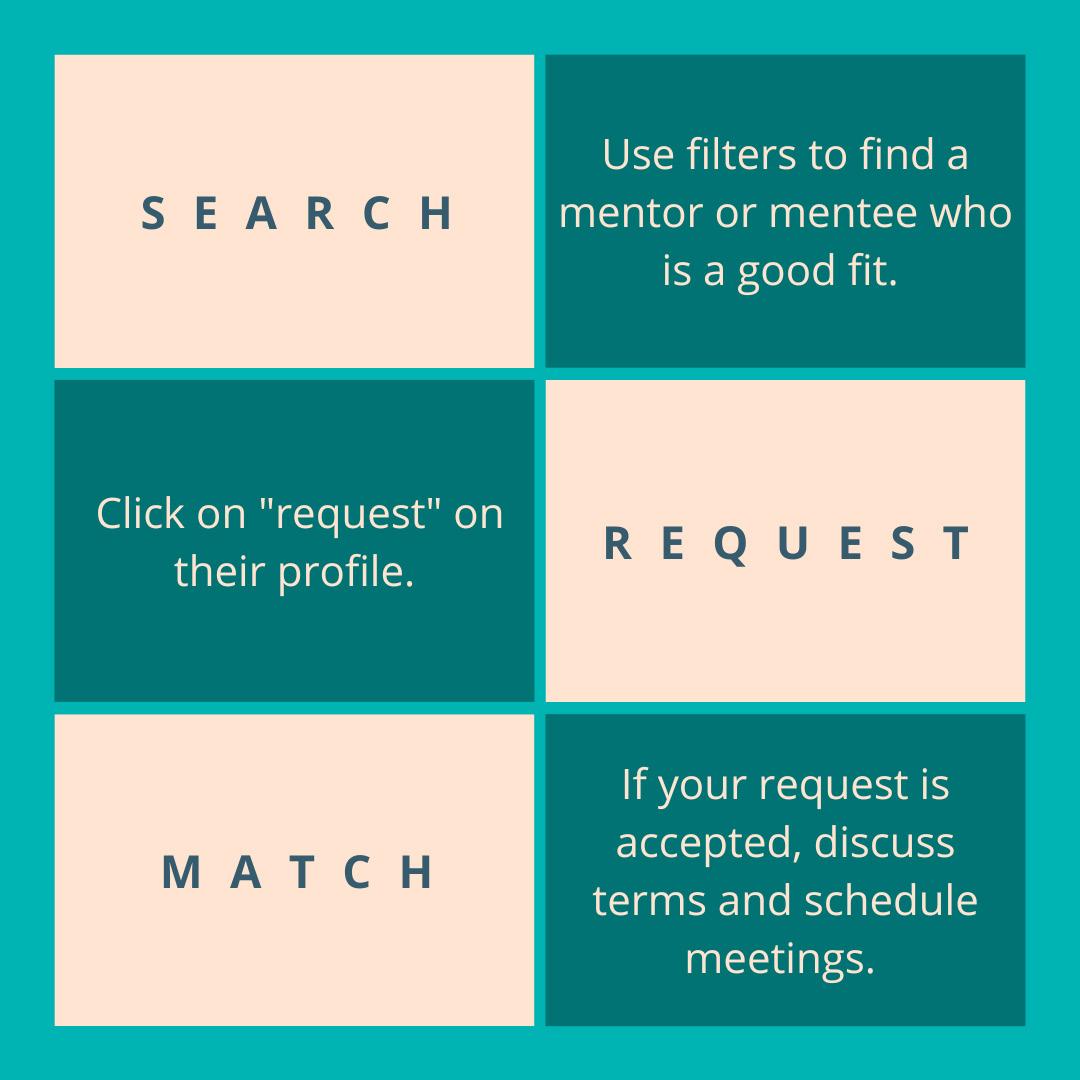
Log on to Collaborate and build your Mentor Profile today!
Excellence in Clinical Supervision Award
Supervision is a crucial part of the journey of becoming a psychologist. The Excellence in Clinical Supervision Award celebrates the crucial support of these leaders in the field.

This award is presented to an individual whose performance in supervising one or more individuals in any practice area of applied and/or practical supervision of clinical/counseling internship, practicum, or provisional psychologists, that is deemed exemplary during the previous two-year period.
Congratulations to the recipient of the 2022 Excellence in clinical supervision award: Dr. Anusha Kassan.
PAA recognizes companies, psychologists, and individuals through a series of awards yearly. Our award categories honour excellence in psychology leadership and research in Alberta.
Nominations are now being accepted until 30 April 2023
Nominate someone special for a 2023 PAA Award!
Notes from the CEO’s Desk
“I grew up in an atmosphere on the farm that we have got to solve problems with regard to war and peace, with regard to the economic distribution of goods, with regard to health care, with regard to education. Growing up in that background has had a great deal of influence in terms of my concern for other people.”
-The Late
Dr.
Jean Pettifor, Psychologist
By Dr. Judi L. Malone, PAA CEO Registered Psychologist (AB/AUS)
Dr. Jean Pettifor is a legend in Canadian psychology. I am humbled that Jean was a mentor and a friend. She always pushed me to think large scale and to challenge difficult questions.
That fueled a passion I share with so many psychologists in Alberta—increasing access to quality psychological services by those who need it. Sustainable solutions for Albertans and our profession.
Stigma Reduction
We can celebrate successes in stigma reduction and psychological literacy, thanks to strong public awareness campaigns, a cultural shift, and the fact that psychology works.
Albertans know what they want—access to psychological health treatment by qualified providers. Albertans have confidence in psychologists.
Although we are regulated health professionals with extensive training, not everyone needs to see a psychologist. Indeed, our role includes advocating for systems to be more effective at triaging or providing evidence-based services. Our specialization in assessment, diagnosis, treatment, and consultation means that our goal is to be available to those who need us the most. Often, these are Albertans without the financial or other resources to access our services.
Access Barriers
Demand is high and increasing annually as Albertans reach out in record numbers. The pandemic has exacerbated this need for psychological support. There are more temporary and supportive services available, but also more economic barriers to psychologist access.

The latest national poll indicated that 47% access psychologists through private insurance, 26% from the public health system, and 26% pay out-of-pocket.
Solutions
The three easiest solutions for psychologists to provide valuable cost-effective services:

1. Fund psychological health on parity with physical health based on the burden of disease.
2. Have psychologists advise on how to increase service access or to design best practices.
3. Make psychologists accessible to Albertans who need them the most.
Call to Action
Your voice matters. Your role matters. Did you know that PAA’s Advocacy Training is now available for online study? PAA offers a wealth of resources to support your role in advocacy
In closing…
Together, we keep challenging ourselves, our profession, and our society to be more. Each of us contributes to that process.
Judi
2023 March Psymposium 6
Supervision Column
Developing a Supervisory Infrastructure

 By Jeff Chang, Ph.D., R. Psych
By Jeff Chang, Ph.D., R. Psych

Aprovisional psychologist in private practice meets with a patient who has booked on-line, citing “life stress” and “relationships” as presenting problems in the on-line intake form. After about ten minutes, the patient discloses a severe problem—one that the provisional vowed never to treat because of family trauma related to this problem. The provisional, feeling repulsed by the patient and worried about their total lack of competence, ends the session early, telling the patient that they would have to refer them elsewhere because they don’t work with this problem. However, there are few local practitioners who specialize in this issue; those who do have long waiting lists. The provisional is so unsettled that they cannot provide bridging support or advocate for the patient until appropriate services become available.
Consulting with supervisors, I’ve heard similar stories. The patient in this composite example was ill-served and the provisional had an unpleasant experience without much support. How could this have been prevented?
COVID-19 transformed the way we practice. The pandemic eliminated the familiar infrastructure of “hanging out” in the clinic and walking down the hall for a consultation with colleagues. This human infrastructure is still largely missing. Where face-to-face services are offered, practitioners are often “ships passing in the night.” Supervisors and practice owners must work to recreate this supportive infrastructure that was “just there” before. Here are three ideas about how to provide infrastructure to support our trainees’ safe and competent practice: Encourage pre-intake consultations. Some private practitioners offer free 15- to 30-minute pre-intake consultations for potential patients. These can be part of the clinical supervision process, coaching provisionals to self-evaluate their competence. In private practice, the time cost is likely offset by preventing the stress and risk of operating outside of one’s competence. Plus, it’s good customer service.
As much as
possible, de-couple clinical supervision and supervisees’ revenue generation I recently reviewed a supervision contract that explicitly stated that the supervisee’s financial productivity and the evaluation of their clinical skills would not be connected. This is something to strive for, but it’s not easy. The working alliance is the biggest contributor to clinical outcome. Patient retention and good outcomes are also good for the bottom line. On the other hand, loading up on billable hours with patients that are outside of one’s competence is a recipe for poor outcomes, if not regulatory complaints. As a former practice owner, I empathize with the need to cover overhead and be compensated for non-clinical work to manage the practice. Create a relational infrastructure where supervisees can ask for help and are motivated, but not inordinately pressured, to generate billable hours.
As an external supervisor, urge the development of the infrastructure to support your provisional. Clinics with other regulated health professionals may be acceptable to CAP, but chiropractors, physiotherapists, and massage therapists are unlikely to understand what’s necessary to support mental health practitioners (e.g., patient screening, sound-proof rooms, urgent risk protocols, and appropriate file management.) Please support your provisionals to advocate for this; if necessary, step in to educate the practice owner. Also, most psychology practices that require provisionals to be externally supervised provide great infrastructure and support—but some don’t. Please be the former, not the latter.
COVID-19 compelled us to deliver services differently and to rethink how to support those we supervise. Please reflect on other ways of providing the practice infrastructure your supervisees need in this postpandemic era. References available on request.
“Here are three ideas about how to provide infrastructure to support our trainees’ safe and competent practice.”
Board Notes
By Claire Petersen, R. Psych
Asa psychologist, I am continually seeking out ways to expand my professional circle, collaborate with others, and learn from those around me. I am fortunate to work within an organization where I am surrounded by others who challenge my thinking, encourage reflection, and share their wisdom. Lately, I’ve been reflecting on the power of those relationships and connections; the gift of having other professionals in my life to mentor and guide me along this journey. Mentorship has long been seen as a powerful tool in professional development and growth. It is a dynamic process that can be a highly rewarding experience for the mentee, the mentor, and the profession.
Individuals who are mentored in their practice stand to reap many benefits including skill gains in professional knowledge, skill development, and increased confidence in various areas of practice. Through these meaningful professional relationships, we can nurture connections within the broader psychology community and facilitate networking opportunities which may result in increased job satisfaction.

Mentors also stand to benefit from the mentoring relationship. Mentorship provides an opportunity to give back to the profession, take on a leadership role, and contribute to the development of the next generation of leaders. The practice of mentoring requires us to stay current in best practices and potentially seek new learning of our own in order to facilitate the process. As a result, mentors may notice an increased sense of satisfaction from sharing their knowledge and skills, as well as increased feelings of competency and connection to the profession.
Finally, mentorship stands to benefit the profession by building skills in psychologists, providing leadership opportunities, and creating robust networks of interconnected professionals across the province. In addition to the wisdom that can be shared and passed on from experienced practitioners, there is much we can learn from recent graduates and early career psychologists who are armed with knowledge about new and innovative practices, advancements in the field, and emerging technology. Ultimately, mentorship involves collegial and respectful relationships, role modeling, coaching, and support. Therefore, the matching of mentor to mentee may be one of the most important factors in establishing a positive and rewarding connection.
I am beyond grateful for the mentors I’ve had throughout my professional life. They’ve taught me, coached me, and encouraged me. I’ve felt inspired, set goals for myself, and developed new skills as a result of their influence. The impact of a mentor can go well beyond professional learning. Some of the mentors I’ve had throughout my life have become respected colleagues and dear friends.
The development of reciprocal professional relationships can be life-changing. I’d encourage you to reflect on those who have played a mentorship role in your life and perhaps reach out to them to let them know the impact of their involvement. Perhaps you would consider becoming a mentor yourself. To learn more about this new opportunity to engage in a meaningful mentorship program, visit Collaborate and click the Mentor Match Drop Down Menu.
Respectfully,
Claire Petersen, R. Psych, PAA Board President
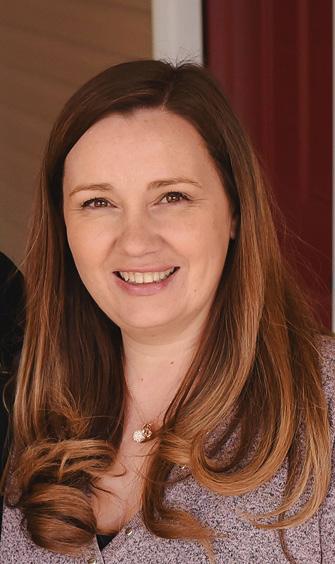
2023 March Psymposium 8
“The matching of mentor to mentee may be one of the most important factors in establishing a positive and rewarding connection.”
Technology in Practice Task Force
The Role of Unconscious Bias When Choosing New Technologies
 By Dr. Michael Stolte, R. Psych. (AB), PhD in Special Education
By Dr. Michael Stolte, R. Psych. (AB), PhD in Special Education

Last year, I introduced Roger’s (2003) seminal work on five areas of unconscious bias that shape our decisionmaking when adopting a new technology. The purpose was to better understand how we evaluate new technologies, particularly within the context of the current shift to increased use of telepsychology. Basically, Roger’s theory predicts we are more likely to adopt a new technology if it is perceived as providing relative advantage over existing practices, is compatible with those practices, is not overly complex to adopt, and there is opportunity to “trial” before fully committing. Finally, if we can observe others using the technology, particularly by high-status and trusted individuals, we are more likely to adopt it. Within this theory, adoption of new technologies is seen as primarily a social process, where we look to others to decide relative merit, and this is also the lens through which we evaluate perceived risks and benefits.
Smiley and Fisher (2022) 1 identify an additional area of unconscious bias in a series of research studies recently published in Psychological Science described as “status quo thinking.” They describe how people have a natural skepticism towards new technology, and though there is large individual variability, this skepticism appears to increase as we age. Essentially, once we have adopted a technology (e.g. a phone in telepsychology), we are less likely to adopt a new technology (e.g. using a video link), despite its possible merits or benefits. Moreover, we are also more likely to identify potential harm with its adoption. For example, they found in one study of 400 participants that people were much less likely to rate a new technology favorably if that technology was developed after they were born, and this effect became more pronounced after about 2 years of age when memories are first formed. Additionally, in a follow-up study of 804 participants evaluating the impact of 20 technologies
introduced at varying times between 1950 and 2005, they found that “being older at the time of invention predicted more negative evaluations of the technology” (p.1610). It seems status quo bias was seen to be more pronounced as participants aged, suggesting that as we age, we are more likely to resist the adoption of new technology and associate it with potential harm.
I found this series of studies relevant as, largely due to the unintended impacts of COVID, psychologists were forced to rapidly shift to adopting new telepsychology practices. As we enter a post-COVID era, many psychologists are now wrestling with how much they want to continue with the use of telepsychology and its perceived value. The impact of rapid adoption of telepsychology is still being sorted out with many regulatory, ethical, and practice implications. As psychologists, guided by our Code of Ethics (CPA, 2017) 2 and regulatory standards, we are now being tasked with sorting out the potential benefits and harms of these decisions, as well as how best to integrate this model of practice. Being aware of our own unconscious bias will help ensure we approach these decisions in a more balanced manner.
References:
1. Smiley, A. H., & Fisher, M. (2022). The Golden Age Is Behind Us: How the Status Quo Impacts the Evaluation of Technology. Psychological science, 33(9), 1605–1614. https://doi.org/10.1177/09567976221102868
2. Canadian Psychological Association. (2017). Canadian code of ethics for psychologists (4th Ed.). Ottawa, ON.
Written by Dr. Michael Stolte, R. Psych. PhD in Special Education mstolte@integritypsych.ca
www.paa-ab.ca 9
“As we age, we are more likely to resist the adoption of new technology and associate it with potential harm.”
Anti-Racism and Psychology
Racism, Power, and Mental Health
By Gina Ko, Ph.D., R.Psych
There are many forms of racism faced by racialized and minoritized individuals. When power is part of the experience, mental health can be vastly impacted. Individuals experiencing such “power-over” may be fearful, hypervigilant, distressed, and have difficulty sleeping. Such moments can be felt in the workplace when a manager, supervisor, and people in positions of power abuse their authority. I hear from guests on my podcast, “Against the Tides of Racism” (https://www.againstracismpodcast.com/), that such occurrences can feel like a death by a thousand cuts or being stung by mosquitoes thousands of times. These experiences can start from childhood and they can be felt through the decades. Patients from my private practice would question if they are experiencing racism, microaggressions, and xenophobia. Through close active listening, cultural humility, and cultural responsiveness with an anti-racism lens, I immerse in questions to understand and we co-construct that, in fact, they are undergoing such. At times, they are relieved to hear such validations and to know they are not imagining their pain. Some feel humiliated, distressed, embarrassed, and even shame when they did nothing wrong to invite the aggression.

I am the Director of Mental Health as part of the Asian Gold Ribbon Campaign (https://asiangoldribbon.com/); my colleagues and I are working toward a more inclusive world to celebrate Asian pride and amply Asian voices. We stand against anti-Asian racism and racism of all forms. In the realm of power, we need to resist and take back power so that stereotypes such as the model minority and perpetual foreigner need to be troubled. Unfortunately, this notion of taking back power can be extremely heavy and unjust on racialized people having to carry the load. The optimal place is for power to be shared. Subsequently, learning “with” is crucial. I believe there is much to learn from the diversity of backgrounds of people we encounter. For instance, rather than viewing accents one is not familiar with as “less than,” accents are strengths because individuals with such accents speak more than one language. They may come from different parts of the world and can contribute immensely to the beauty of diversity. Hence, “power with,” such as being curious and kind to those different from us, is one place to start to equalize the power imbalance. To those in positions of power (including myself because I teach and supervise adult learners), you have much influence and impact on cultivating an inviting and accepting space where everyone can feel seen and have a sense of belonging. When people feel valued in this way, mental health and well-being will likely improve while thriving is possible.

2023 March Psymposium 10
“Some feel humiliated, distressed, embarrassed, and even shame when they did nothing wrong to invite the aggression.”
2
2023 PAA Board Meeting Dates



www.paa-ab.ca 11 The PAA Board of Directors meeting dates for 2023: • 05 May 2023 • 08 September 2023 • 08 September 2023 – The 2023 PAA AGM Online • 03 November 2023
ALEXIA ROTHMAN , ph . d .
DAY INTRODUCTION TO THE INTERNAL FAMILY SYSTEMS (IFS) MODEL STEVEN G. FEIFER , d ed ., absnp Improving Skills & Competencies for Mental Health & Education Professionals THE WESTERN CANADA MENTAL HEALTH SUMMIT CALGARY | MAY 24–26, 2023
LIVE IN-PERSON & LIVE STREAM CONFERENCE IN PERSON TRAINING | EDMONTON - MAY 25 & 26, 2023 IN PERSON TRAINING | EDMONTON - MAY 4 & 5, 2023
2
SPONSORS
DAY SKILLS PRACTICE
Strategies & Interventions
Adolescents
& Writing Disorders Mental Health & Education Workshops
ONLINE: JACKHIROSE.COM SAVE 10% PROMO CODE: PAASAVE Paid advertisement
INTENSIVE Brain-Based
to Help Children &
with Reading
REGISTER
Psychology Month Open House



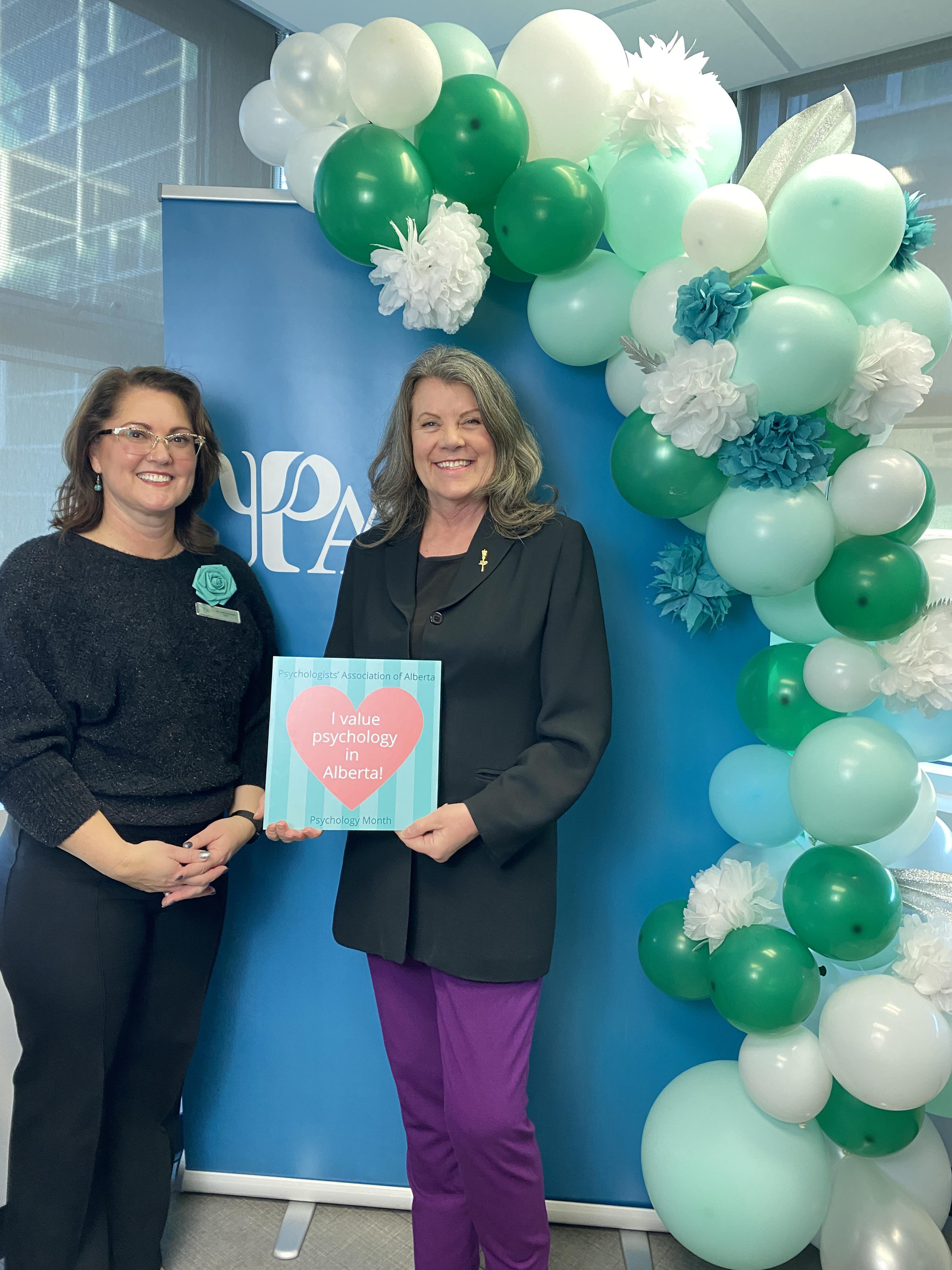

We opened our doors for our first Psychology Month Open House 08 February, building awareness of the unique value of psychology in Alberta. We welcomed community and business leaders, elected officials, and key volunteer psychologists! Guests included His Worship Mayor Amarjeet Sohi, with Councillors Keren Tang, Jennifer Rice, and Jo-Anne Wright; Honourable Lori Sigurdson; Kathryn Oviatt, Chief of the Commission and Tribunals, Alberta Human Rights Commission; and Honourable Nicholas Milliken.

Psymposium Trivia
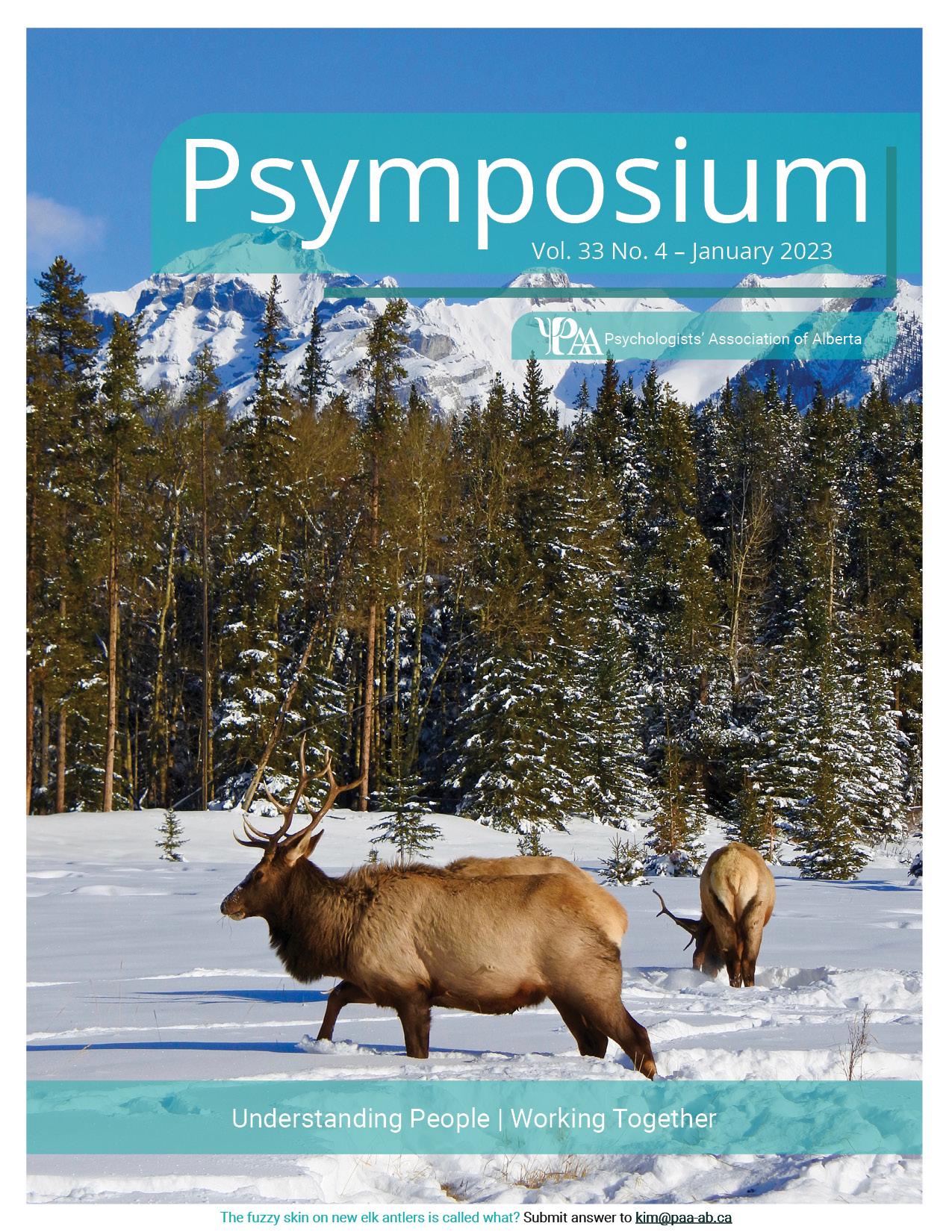
The question from our 2023 January issue:
Q: The fuzzy skin on new elk antlers is called what?
A: Velvet
Thanks to members Sandra Annis, Ted Cadman, Francine Wilson-Symbaluk, Dina Gerwing, Dionna Begg and Gladys Severson for the correct responses!
2023 March Psymposium 12
2023 Membership
Renewal: Due 31 March
Thank you for your continuing support of PAA and our work to advance the science-based profession of psychology!
Our online membership renewal for the 2023-2024 membership year opened in January 2023. By purchasing a 2023-24 membership, you contribute to our work in advocating, educating, and applying psychological science to promote the well-being of all Albertans.
Membership fees are due on 31 March 2023. A late administration fee will be charged after that.
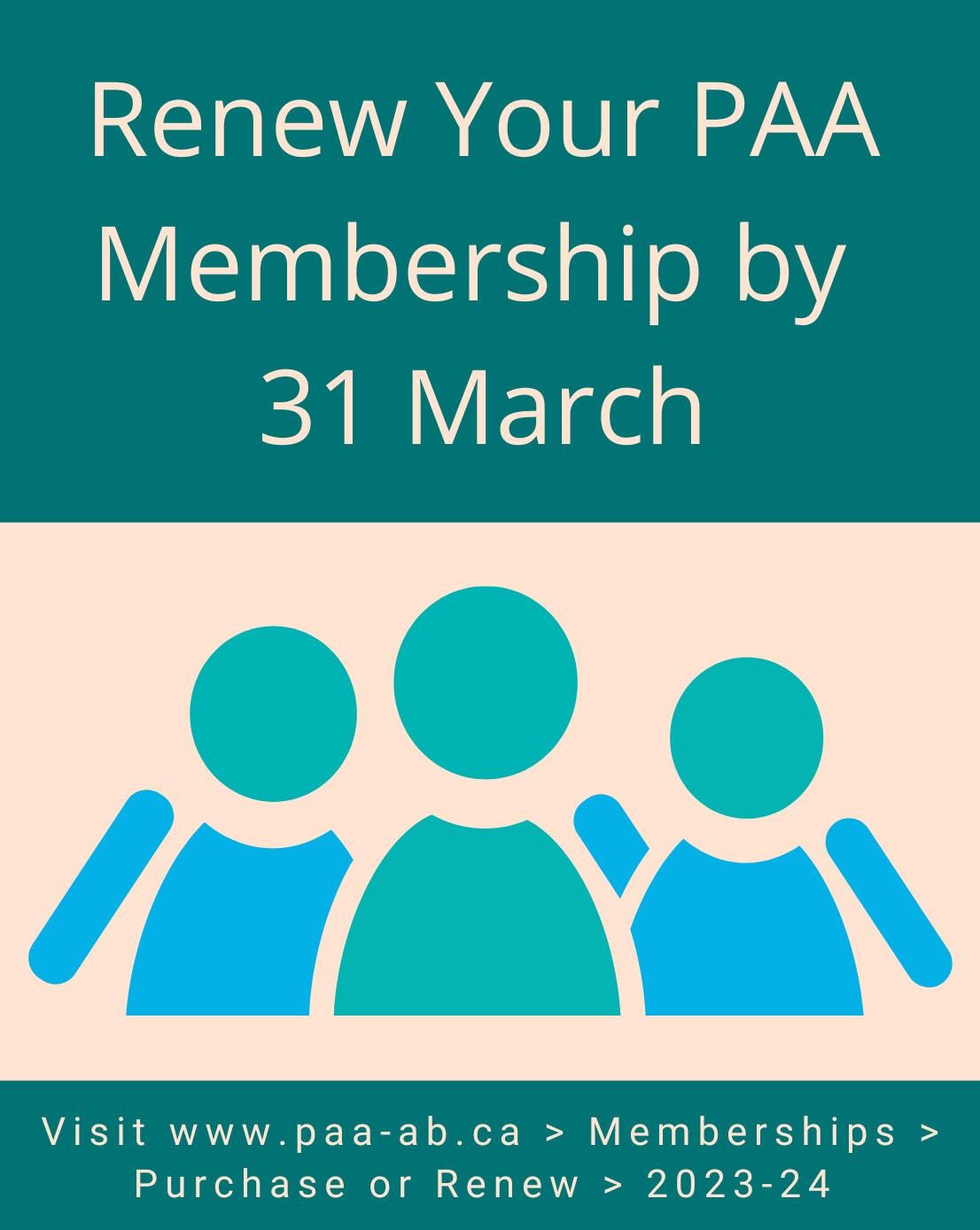
2023 PAA & CAP Joint Town Hall Dates

Town Halls offer members the opportunity to connect with PAA CEO Dr. Judi Malone and CAP CEO Dr. Richard Spelliscy. PAA and CAP join in hosting town halls in different communities in Alberta throughout the year.
CONNECT WITH PAA AND CAP!
LOCATION: Fort McMurray
DATE: 18 April 2023
These dates are subject to change. For the most up to date information, visit our Events and Webinars page.
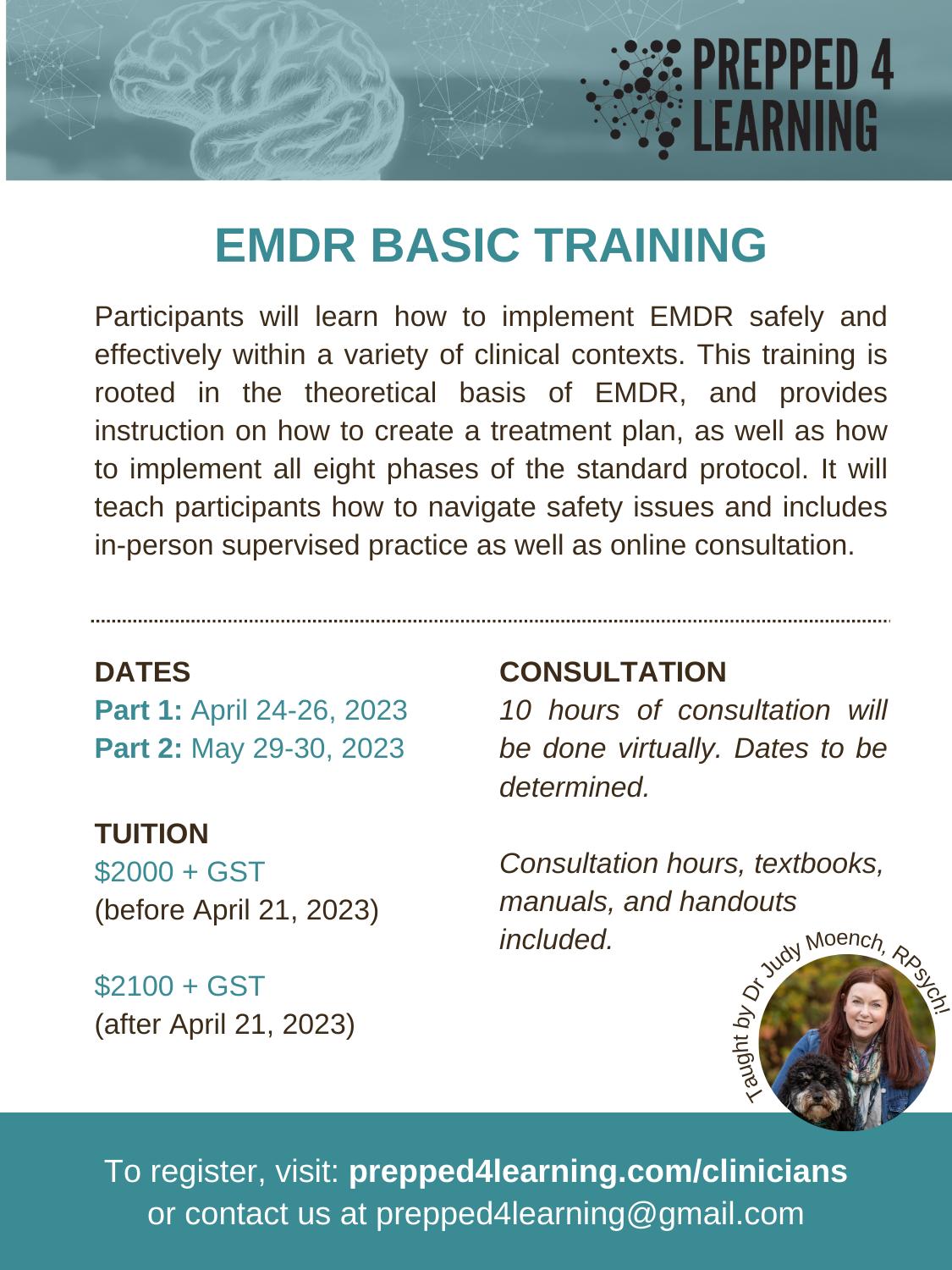
www.paa-ab.ca 13
Ethics – The Impossible Imperative Competence, Self-Knowledge and Impaired Judgement
By Jon Amundson, Ph.D., R. Psych

Thecontent of this column arises from II.11 in the Canadian Code and 5.4 in our Standards of Practice and a recent article in Practice Innovations (https:// doi.org/10.1037/pri0000190). Each pertains to selfassessment/monitoring relative to competency and/or impaired judgment in the execution of our professional duties. They are essentially inducements to watch ourselves relative to doing what we do professionally. This is more aspirational than actual. We can’t count on ourselves to know ourselves. We fail relative to our failures. The tendency is to rationalize, make excuses, minimize or otherwise protect ourselves when issues arise. The need for agency and the desire to avoid humiliation overrule more objective evaluation. Nonetheless, there are some ways we can be better at this. What follows is a discussion of potential impairment relative to this admonition to self-care and self-appreciation. The helpful hints presented here ought to lead to a larger conversation. To protect those around us from any failure in our execution of duties, here are useful ideas and practices.
1. The article above speaks about communitarian or social support networking. So, the first thing relative to competency is to have people around you who won’t let you rationalize or make excuses or justify.
2. When confronted by patient, colleague, co-worker, collateral or supra/sub-ordinate, the first regress is often to make excuses or plead intent. Regression to selfjustification and protection can be an impairment in and of itself in tough situations.
3. More objectively, notice things around you:
» If previously active in your association/college, are there fewer invitations to participate in activities?
» Are actions in these contexts more about impression management or self-efficacy i.e. to demonstrate agency and presence and to be noticed than to contribute in useful ways?
» Has there arisen greater contrarianism relative to others in conversation and interaction with others; counterarguments for the sake of such as opposed to edification and progressive intent?
» Is there a change in previous interactions or engagement with other professionals: have things become stale, distant, or avoided on either side?
» Is my discourse or manner of speaking, interacting, and socializing becoming corny, and my ‘tremendous’ humour only receiving polite applause? Are attempts at being relative falling short or at its worst, harmful?
» Do you go to work, or to go home? What are the changes in one’s pursuit of continuing competency? Writing less, less professional development?
» What are you doing relative to ‘sin’? No, not in a theological sense but how are you passing time?
4. Inside the skin, there are things that might raise concern:
» The mind has a mind of its own, and does your ‘mind of its own’ promote cynicism, criticality, selfrighteousness, defensiveness, doubt, and so on? The mind is about survival and effective presence in the world, what I want to believe and ought to be, and how I want to be seen
» Oops! Is there derailing, tangentiality, pressure of speech, self-disclosure of autobiographical indulgence, lapse in speech or thought, and related clinical markers emerging in teaching, training, research, evaluation, or treatment/intervention?
» Is the practitioner sad, scared, or mad to the degree we ought to be a patient rather than a practitioner?
This discussion began with the social or contextual nature in assessment of competency and capacity. This is because that will seldom come from inside our skin. Self-criticality is something we generally abjure and often treat in others. Clinically we can’t work without a good degree of confidence and self-esteem. Hence the mind will battle to sustain the way it believes we should be. Often then cues from our environment are the best door openers: something might not be as it should. And we need to look for subtle indications and not wait for someone to sound a serious alarm. Sadly, impairment is often managed by the mind of the first part until a car wreck. The road to hell is not only paved by good intentions but rationalization, selfexculpation, and avoidance. And I am out of words!
2023 March Psymposium 14
“We can’t count on ourselves to know ourselves.”
Alberta Psychology in the Media
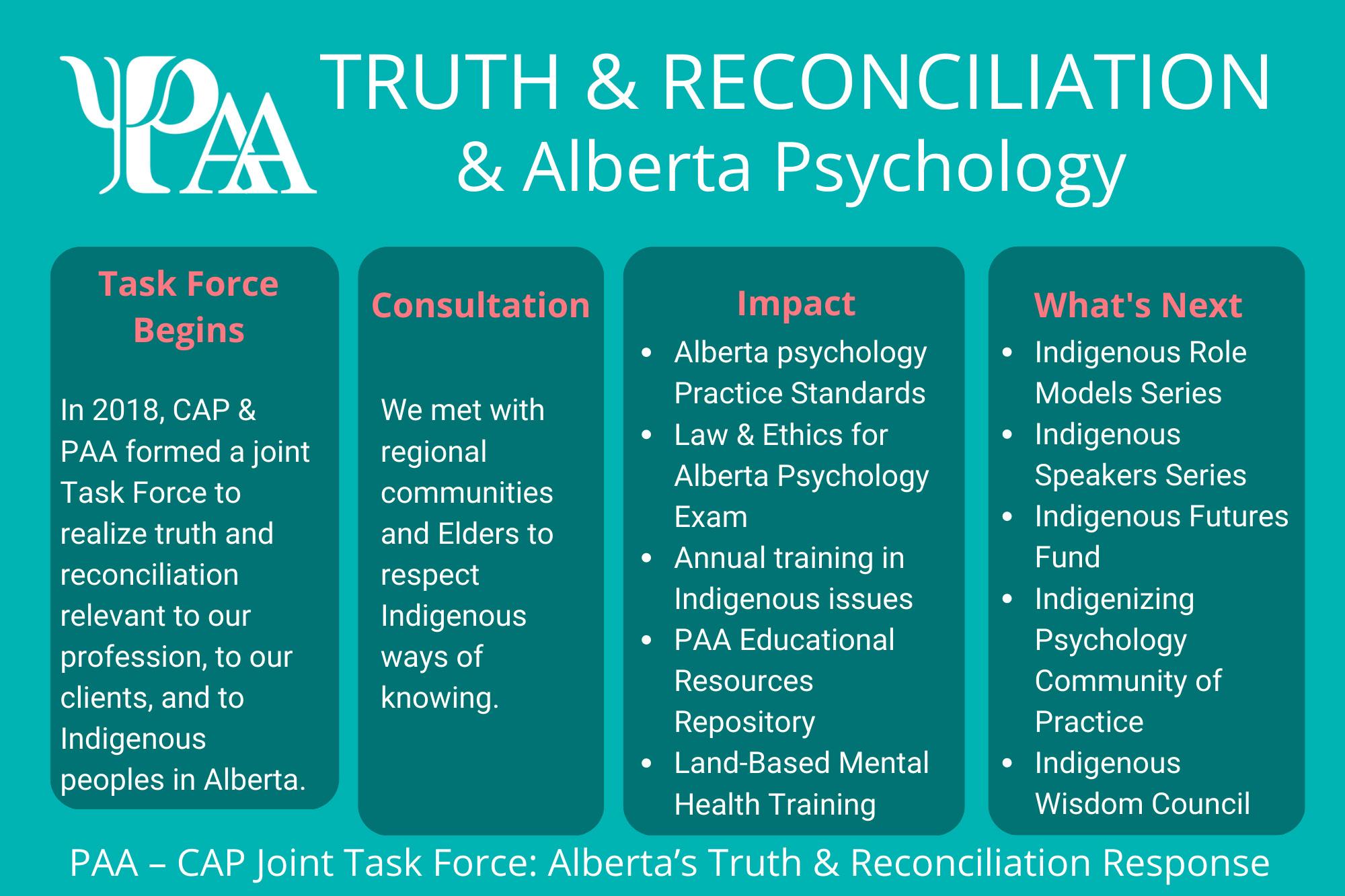
Media Engagements
17 Media Pieces
VIA
THANKS TO
Nov 2022 – January 2023
» CTV News
» 630 CHED Radio
» The Adventure Reignition Podcast
» Global News
» Medicine Hat News
» Lethbridge Herald
» Channel Punjabi
» Dr. Ganz Ferrance
» Dr. Linda Hancock
» Dr. Brent Macdonald
» Aimee Reimer
» Harpreet Gill
ON TOPICS INCLUDING
» Money doesn’t equal memories
» New Year’s resolutions
» Positive Psychology & True Resiliency
» Holiday Season
» What is Success?
» Loss
» Your Personal Bylaws
» Thank You Veterans
» Tik Tok Challenges
» Dry January
» Growing Mental Health Issues in Indo-Canadian Families
If you or a colleague are interviewed through any media outlet (newspaper, radio, television), or if you have attended a career fair or public speaking engagement, please contact the PAA office at paa@paa-ab.ca to advise us so that we can include the information in our report.
www.paa-ab.ca 15
Growing Together: Tips for Future Leaders
Growing Together is for members who are students, Provisionally Registered Psychologists (PRP), or Early Career Psychologists (ECP). This feature is presented by your PAA Board Representatives. Contact them with questions!


» Student members: Katherine at katherine.archibald@ucalgary.ca

» PRP members: Samantha at samleegruber@gmail.com
» ECP members: Sandra at womanofinfluence1@yahoo.com
This year, Samantha’s goal is to continue to build connection and community among the provisionally registered members, especially via virtual and in-person meet-ups.




Activeparticipationinthe canWellnessCornerSessions ContinuingcounttowardsCAP’s CompetenceProgram(CCP)credit.
Registered Psychologists,Provisional look for Collaborate to keep up with workshops, and opportunitiesconnection/networking relevant to you!
PAA’s New Professional Guidance Program
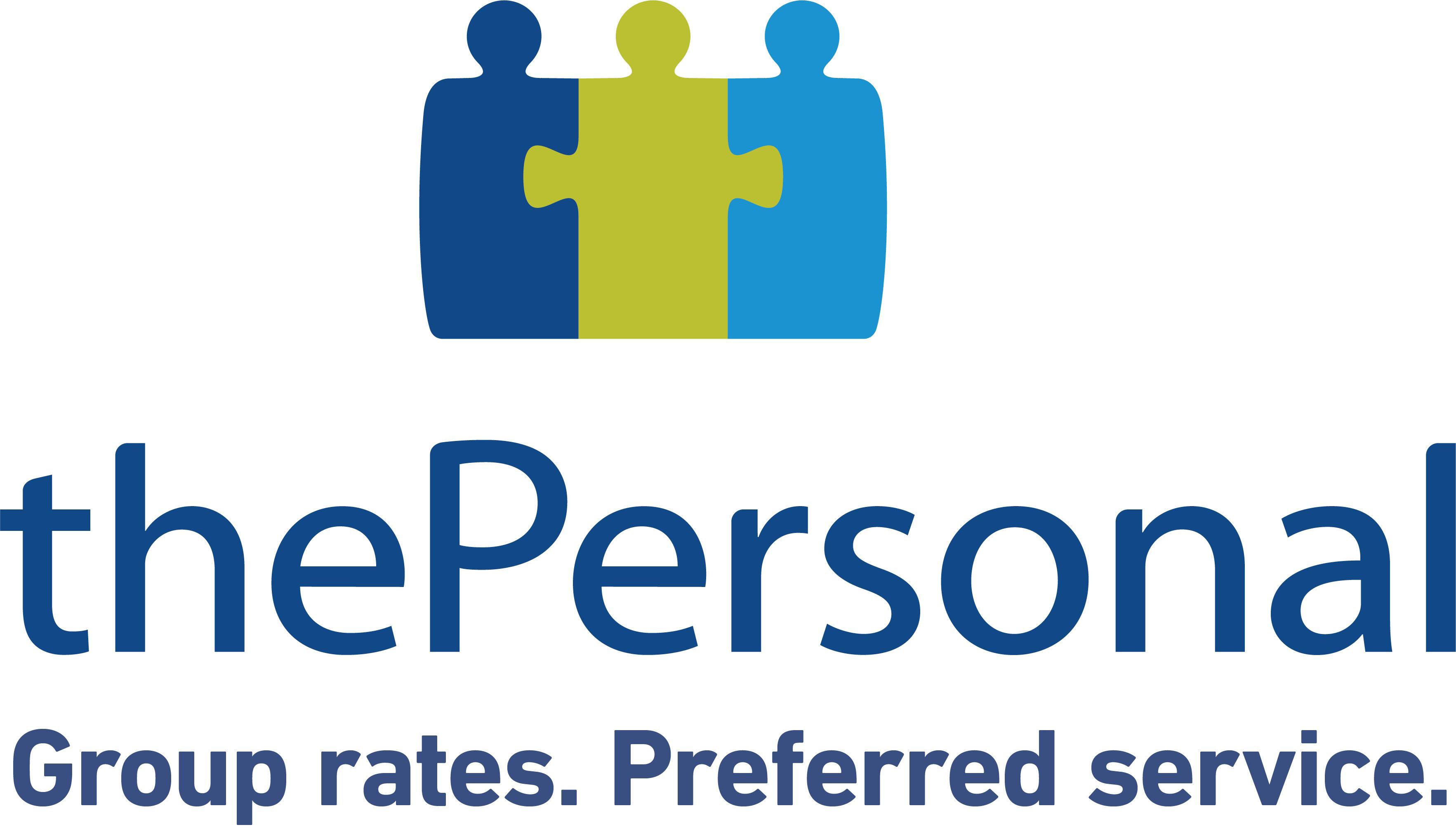

Did you know that PAA has launched a new Professional Guidance Program? Our staff can assist you in learning about and thinking through ethical, clinical and professional dilemmas in your work as psychologists. We will evaluate your needs and suggest resources that are relevant to your inquiry.

Harpreet Gill, PhD. R. Psych., is PAA’s new Director of Professional Guidance. She is a Registered Psychologist in Alberta with over 16 years of counseling experience with adults and couples. She has worked in Employee Family Assistance Program (EFAP), and private and nonprofit settings. Her areas of expertise include depression, anxiety, PTSD, relationship issues, grief, addictions (including assessments), trauma, self-esteem issues, and immigrants’ mental health concerns.

Mattise Gauthier, B.Sc Honours Psychology, is your first point of contact as PAA’s new Professional Guidance Officer. Mattise brings her psychology education as a MacEwan University graduate.

If you need support navigating an ethical or clinical concern, visit our webpage or contact us at mattise@paa-ab.ca.




Community of Practice Highlights





Have you explored Collaborate yet? Collaborate is our online community for discussions, libraries of shared resources, events, and so much more. Many of our Communities of Practice (CoPs) hold virtual monthly meetings where you can connect with your peers on shared interests and meet other psychology professionals. Explore our CoPs to participate in interesting conversations or monthly meetings!

Have a CoP highlight to share? Email jessica@paa-ab.ca with your highlight and the name of your CoP.

www.paa-ab.ca 17
MEMBER BENEFITS
Exploring Assessment in Professional Psychology

Some Extremely Useful Diagnostic Codes
By Dr. Michael Lee Zwiers, , R. Psych

Ifyou use the DSM-IV-TR diagnostic system, you will be familiar with some of the more common diagnoses like Major Depressive Disorder, Generalized Anxiety Disorder, and Post-Traumatic Stress Disorder. Most of these mental health conditions are classified as F Codes. In this article, I will review some less well-known but extremely useful diagnostic codes.
Adjustment Disorders is a category reserved for mental health problems that arise in the context of psychosocial stressors, and that do not meet the criteria for another disorder. The adjustment problem must also emerge within 3 months of the onset of the stressor and must resolve within 6 months of the stressor being removed. Types include Adjustment disorder with anxiety (F43.22), Adjustment disorder with depressed mood (F43.21), Adjustment disorder with disturbance of conduct (F43.24), Adjustment disorder with mixed anxiety and depressed mood (F43.23), Adjustment disorder with mixed disturbance of emotions and conduct (F43.25), or Adjustment disorder
Unspecified (F43.20). Note that if the stressor is severe enough to be considered traumatic, then the appropriate diagnosis would be PTSD, Acute Stress Disorder, or an Other specified trauma-related disorder (F43.89)
Z Codes are typically used when the condition or psychosocial problem is the main reason a person seeks support. However, these conditions can also be coded if: a) it helps to explain the need for a test or treatment, b) it plays a role in the initiation or exacerbation of a mental disorder, or c) it is a problem that should be considered in the overall management plan. There are many Z Codes, under categories of personal or psychosocial history (suicidal behaviour, abuse and neglect, psychological trauma, and military deployment) and current psychosocial problems (economic problems; educational problems; housing problems; occupational problems; problems related to the social environment; problems related to interaction with the legal system; problems related to other psychosocial, personal, or environmental circumstances;
problems related to access to medical and other healthcare; and relational problems).
I will introduce some of the most common and most useful Z Codes for clinical practice. Under the Personal Problems umbrella, you will find: Academic or educational problem (Z55.9), Acculturation difficulty (Z60.3), Phase of life problem (Z60.0), Problems related to unwanted pregnancy (Z64.0), Religious or spiritual problem (Z65.8), Target of (perceived) adverse discrimination or persecution (Z60.5), Uncomplicated bereavement (Z63.4), Victim of crime (Z65.4), and Victim of terrorism or torture (Z65.4)
Under the Relational Problems umbrella, you will find: Child affected by parental relationship distress (Z62.898), Disruption of family by separation or divorce (Z63.5), High expressed emotion level within family (Z63.8), Parentchild relational problem (Z62.820), Relationship distress with spouse or intimate partner (Z63.0), Sibling relational problem (Z62.891), Social exclusion or rejection (Z60.4), Problem related to living alone (Z60.2), Discord with neighbor, lodger, or landlord (Z59.2), Unspecified problem related to social environment (Z60.9), and Upbringing away from parents (Z62.29).
Under the Behavioural Problems umbrella, you will find: Adult antisocial behavior (Z72.811), Child or adolescent antisocial behavior (Z72.810), History of nonsuicidal selfInjury (Z91.52), and History of suicidal behavior (Z91.51) There is also the catch-all category of Other problem related to psychosocial circumstances (Z65.8), and the curious and decidedly vague: Unspecified problem related to unspecified psychosocial circumstances (Z65.9), which I have personally never had the courage to use!
Read the full article.
2023 March Psymposium 18
“I will review some less well-known but extremely useful diagnostic codes.”
Continuing Professional Development
Evidence-Based Practice in Psychology
Edmonton, 17 March 2023 | Cody Guy House Psy.D. | 6 CE Credits
Three major aspects of evidence-based practice will be emphasized: (1) empirically supported treatments (e.g., manualized and principle based protocols), (2) evidence-based psychotherapy relationships and responsiveness, and (3) routine outcome/progress monitoring.
Register
Psychologists’ Role in Addressing Client’s Weight, Body
Image, & Eating Issues
Webinar Series, Starting 23 March 2023 | Dr. Angela Grace | 6 CE Credits
This webinar series runs on the following days: 23 Mar, 30 Mar, 06 Apr, & 13 Apr 2023. Attendance in all sessions is required for CE credits.
The oppression of weight bias and stigma underlie many client issues with body image, eating, and self-esteem.
Register
Personality and Pressure - What Does This Have To Do With Sport and Performance?
Edmonton, 24 March 2023 | Matthew McKenzie Bain | 6 CE Credits
Personality is a word that is often misunderstood and misapplied. A model for the New Big Five is used to zoom in on personality. This six-session composition is designed to unpack, educate, reorganize, and vitalize the perception of how to work with your clients.
Register
General Assessments for Counselling Psychologists
Edmonton, 28 April 2023 | Dr. Jamie Dyce | 6 CE Credits
Assessment and counselling are integral components of the psychotherapy process. Assessment occurs in the initial stages and is often ongoing to inform the psychotherapy process. Topics for this workshop will include mental status examinations, psychometrics, screening measures, and limitations of self-report. Register
Primers
One-hour recorded overview of the topic. Watch anytime, anywhere ($40 + GST).
What’s New in the DSM-5-TR–Dr. Michael Lee Zwiers

Effective Advocacy–Dr. Judi Malone
Assessing Perinatal Mental Health–Kristine Aanderson, Mallory Becker and Dr. Gina Wong
Psychedelics and Psychedelic-Assisted Therapy–Megan McElheran, Ph.D.
Prescribing Service Dogs or Emotional Support Animals–Kristine Aanderson
The Erupting Addictions Pandemic–Dr. Kevin Alderson
The Game of Life: An Introduction to Using Basic Sport Psychology Principles in Clinical Practice–Dr. Caelin White
Family Restructuring Therapy–Dr. Stephen Carter
Trauma & PTSD in First Responder Populations–Dr. Megan McElheran

Psychology of Cannabis Addiction–Dr. Jonathan Stea
Preparing for Cannabis Legalization: A Psychologists’ Evidence-based Guide–Dr. Igor Yakovenko


www.paa-ab.ca 19
2023 Membership Renewal: Due 31 March
Membership fees are due on 31 March 2023. A late administration fee will be charged after the deadline. Visit our membership purchase page to learn more.

PAA Referral Service
Are you marketing your private practice effectively?
The PAA Referral Service provides the public with the contact information of registered psychologists who match their region/area of expertise. With excellent value for your marketing dollar investment, the Referral Service is an ideal advertising strategy for those in private practice.
Early Career and Provisional members–you are now eligible for the Referral Service too!
Already on the Referral Service? Use our series of videos for your marketing purposes.
To learn more, visit the PAA website > Membership > Purchase or Renew Membership > 2023/24 > 2023/24 Memberships, and scroll down to Add On Services.
From Nov 2022 to Jan 2023, we averaged
1,096 referrals/month. That’s 36 per day.














 By Dr. Michael Stolte, R. Psych. (AB), PhD in Special Education
By Dr. Michael Stolte, R. Psych. (AB), PhD in Special Education

















































